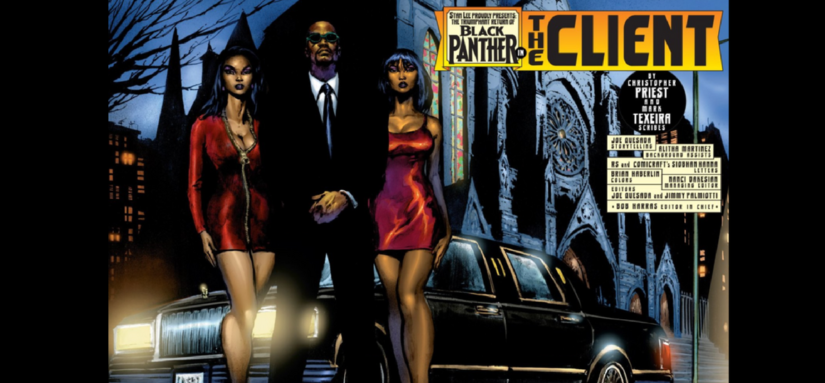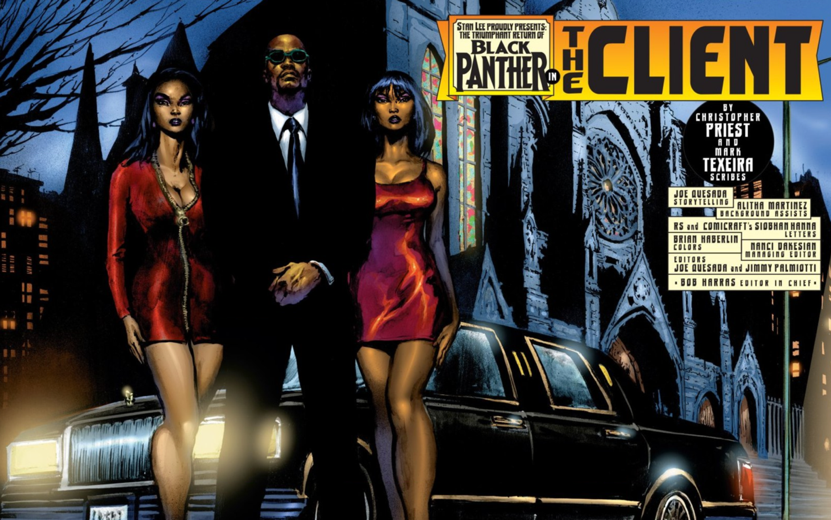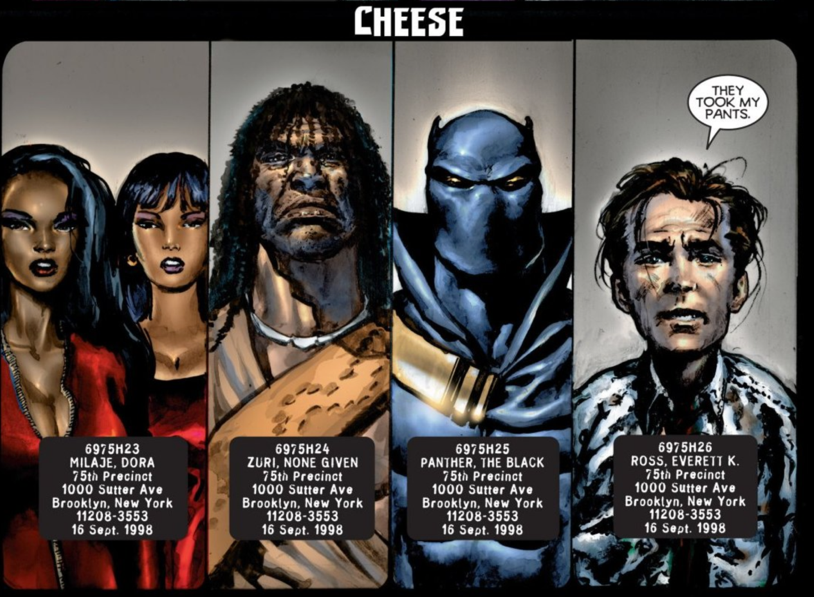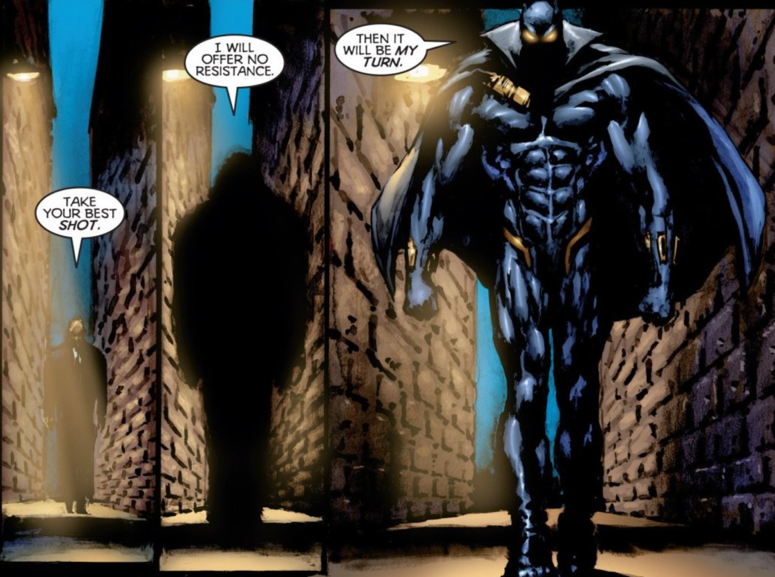In the second week of release of the Black Panther movie, here’s another installment of T’Challa Rising, a four-part series of articles that looks back on landmark moments from Black Panther’s history. So far, we’ve covered the big moments: Black Panther’s debut issue, his induction into the Avengers, and his first clash with perhaps his most iconic nemeses… Erik Killmonger. Now, we’re jumping decades ahead to 1998 to read the first issue of the acclaimed Marvel Knights run of T’Challa’s eponymous series: Christopher Priest’s Black Panther.
To start, you know I always like to see who is in the kitchen. These might be some of the most confusing credits I’ve ever read. Christopher Priest and Mark Texeria are credited as “scribes,” but a moment’s research shows that Priest wrote the issue and Texeria penciled it. Joe Quesada is credited for “storytelling,” and I have no idea what that means if it doesn’t mean writing. Some deep diving shows people theorize that Quesada handled layouts while Texeria did the actual lineart. Alitha Martina is credits for background assists and Brian Heberlin handles colors, with Siobhan Hanna on letters. Now, the reason I tried so hard to crack the bizarre puzzle that is this issue’s credits is because the writing in this comic is absolutely stellar. I’ve never read a comic written by Priest until now, which is an oversight I plan on correcting… because goddamn.
The entire issue is framed around Everett K. Ross, a comedic everyman in the mold of a Xander-type character. Everett is a State Department worker whose life has been flipped upside down after an encounter with Black Panther, a meeting with the Devil, and the loss of his pants. The nonlinear retelling of his experience makes for an incredibly unique read, often expertly misdirecting the reader and undercutting the seriousness of the narrative with hilarious cutaways that mimic the pacing and direction actual conversation. Everett feels real, like a person sitting across from me telling me this unbelievable tale, allowing himself to get lost, to get carried away, to speed past important bits and dwell on seemingly minor moments. It’s brilliant less in the way that I expect from big #1 issues from superhero comics, and more in the way I hope that the pilot episode of an HBO show will feel. It feels like something entirely different is being attempted here, and it really, truly works.
Plot-wise, this is the start of what seems to be a long, intricate story. Black Panther is coming to America after having had a huge problem in Wakanda after involving himself in a clash between tribesmen, city dwellers, and refugees. T’Challa isn’t exactly popular in his kingdom anymore, and is far less so among the criminals of America… one of whom he drags up a building by his hair, just in case the comedic nature of this issue made you worry that you weren’t getting any badass moments here. And that’s the thing that makes this issue stand out for me – while Everett often undercuts his own story, it’s never T’Challa himself that is the butt of the jokes. Black Panther looms larger than life in this story, and much like Stan Lee’s original intro issue that established the hero and his homeland of Wakanda, any pre-existing notions of who T’Challa is are quickly undercut by a display of brilliance, power, and nobility.
Jungle Action #6, the last issue that I covered, amazed me as a writer. I saw that issue as a moment in time, as creators pushing at the boundaries of their medium and trying new things. The story and art were terrific, pushing what we’d seen of Black Panther up until that point to a whole new level. Black Panther #1 continues that, but experiments less with art and the layout of the page and much more with the way we interpret and follow stories. The pacing is unlike anything I’ve ever read, with realistic dialogue and nuanced characters with voices so powerfully written that you can hear them as if they’re speaking to you – and that goes from the bit players to Everett to Black Panther himself.
If someone was looking for a place to start on Black Panther after the movie drops, this is without a doubt the issue I’d point them toward. I admit that I love to review single issues on Blastoff, but I often treat those issues like a moment in time. I seek to understand the stories as historical moments and essential building blocks in the structure of the characters I love to read about today. I love to see how credits change, because watching that progress shows how we have, over time, come to respect each player involved in the creation of a comic. I love to study the big moments in these icon’s past and ask myself why these are the formative stories. This time, though… the first thing I did upon finishing Priest’s Black Panther #1 was look up the collected editions on Amazon. This is a run I’m going to want to marathon through.
And that’s it for T’Challa Rising. All there is for us to do now is head out into the world, buy our tickets, and watch Black Panther storm into theaters. I can feel that this is going to be a big moment, not just in the history of the character, but maybe for the future of superhero media in general.
It’s Black Panther’s turn.







Comments are closed.